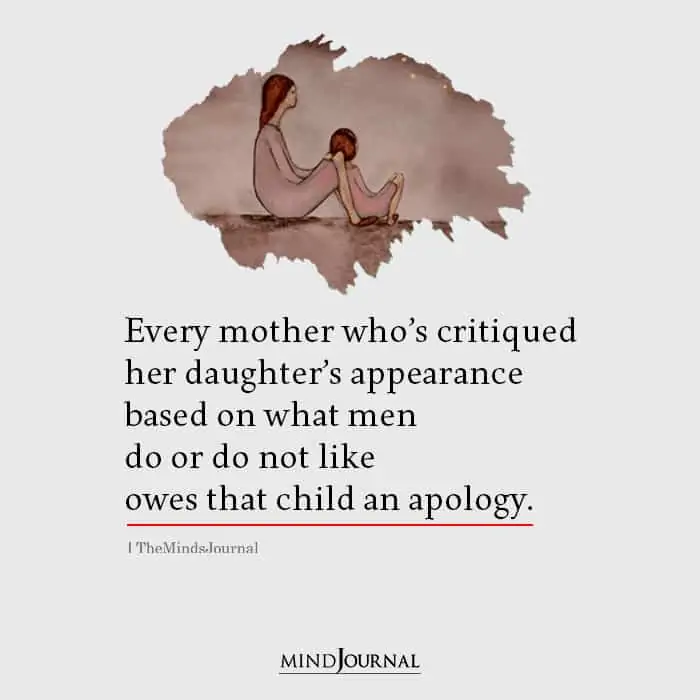Motherhood is a beautiful journey filled with joy and challenges. But what happens when well-meaning mothers unknowingly make motherhood mistakes that result in raising a manchild?
Let’s delve into the world of maternal overprotection and emotional dependence to explore how they can shape a child’s future.
Motherhood mistakes and raising a Manchild
It is very important for mothers to be aware of some common mistakes that can unintentionally lead to raising a manchild. This is why shedding light on the negative consequences of motherhood mistakes, maternal overprotection, emotional dependence, and the perils of being a helicopter mom is crucial.
By understanding these pitfalls, we can empower mothers to foster independence, resilience, and self-sufficiency in their children.
1. Maternal Overprotection
Maternal overprotection occurs when mothers excessively shield their children from life’s challenges and disappointments. While the intentions behind this behavior are often rooted in love and concern, being an overprotective mom can hinder a child’s growth and development.
By constantly intervening and solving problems for their children, mothers inadvertently rob them of valuable opportunities to learn and develop crucial life skills. This overprotection can manifest in different ways, such as –
- Constantly monitoring their child’s activities
- Making decisions for them
- Sheltering them from age-appropriate responsibilities
Related: 5 Common Parenting Errors and How To Be A Better Parent
2. Emotional Dependence
Emotional dependence is another critical mistake that mothers can unknowingly make, leading to raising a manchild. By constantly catering to their child’s emotional needs, mothers risk stunting their child’s ability to cope with emotions independently.
When a child becomes overly reliant on their mother for emotional support, they may struggle to develop their own coping mechanisms and problem-solving skills. This dependence can hinder their ability to face life’s challenges head-on and can lead to difficulties in forming healthy relationships later in life.

3. The Perils of Being a Helicopter Mom
A helicopter mom is a term used to describe a mother who hovers over her child, constantly monitoring and controlling their every move. While this behavior may stem from a desire to protect and nurture, it can have serious consequences.
A helicopter mom tends to micromanage their child’s lives, making decisions on their behalf and shielding them from any potential risks or failures. This over-involvement can inhibit a child’s independence, decision-making skills, and self-confidence, ultimately leading to a manchild who is ill-equipped to navigate the real world.
4. Lack of Age-Appropriate Responsibilities
Assigning age-appropriate responsibilities is crucial for a child’s growth and development. However, an overprotective mom may inadvertently shield her children from taking on these responsibilities, fearing that they might fail or face difficulties.
By not allowing their children to shoulder age-appropriate tasks, mothers prevent them from learning important life skills such as problem-solving, time management, and accountability.
This lack of responsibility can hinder their transition into adulthood and contribute to a sense of entitlement and dependency.
5. Overindulgence
Spoiling a child with material possessions and excessive praise can create a sense of entitlement and dependency.
Mothers who shower their children with constant praise and rewards without teaching the value of hard work and perseverance may inadvertently raise a manchild who expects instant gratification and is ill-prepared for the realities of life.
It is essential for mothers to strike a balance between nurturing and teaching their children the importance of effort, resilience, and delayed gratification.
6. Inadequate Boundaries
Establishing healthy boundaries is crucial for a child’s emotional and social development. Some mothers may struggle with setting appropriate boundaries and, as a result, may enable their child’s dependency by blurring the lines between their own needs and their child’s needs.
It is important for mothers to prioritize their own well-being and model self-care, teaching their children the importance of autonomy and respecting personal boundaries.
Related: 8 Mistakes You MUST Avoid When Raising A Son
7. Overcompensation
Mothers may sometimes overcompensate for their perceived shortcomings by becoming overly involved in their child’s life. This can stem from feelings of guilt or a desire to make up for perceived inadequacies.
However, overcompensation can lead to an unhealthy dynamic where the child becomes reliant on their mother for everything, hindering their personal growth and independence.
It is important for mothers to recognize that imperfections are a part of the human experience and that allowing their child to navigate life’s challenges independently can be more valuable than constant overcompensation.
8. Fear of Failure
Mothers may harbor a fear of seeing their children experience failure, disappointment, or rejection. In an effort to protect their child from these experiences, they may shield them from any potential risks or challenges.
However, failure is an integral part of growth and learning. Shielding children from failure denies them the opportunity to develop resilience, problem-solving skills, and the ability to bounce back from setbacks. Mothers should embrace failure as a valuable teacher and support their children in learning from their experiences.
9. Lack of Role Models
Mothers play a crucial role in shaping their children’s attitudes and behaviors. However, it is equally important for children to have access to positive role models outside of their mother. Exposing children to diverse influences enables them to develop a well-rounded perspective and learn from different experiences.
Mothers should encourage their children to explore various interests and expand their social circles, allowing them to interact with individuals who embody qualities they admire and aspire to emulate.

Sarah and her Son, Alex
Sarah, a loving and well-intentioned mother, unknowingly made several motherhood mistakes that resulted in raising a manchild, her son Alex. Sarah’s maternal overprotection denied Alex opportunities to learn and grow independently. She shielded him from failure, making decisions on his behalf and catering to his emotional needs excessively.
Sarah was a helicopter mom and this prevented Alex from developing essential life skills, resulting in emotional dependence and a lack of responsibility. As a result, Alex struggled to make decisions, handle challenges, and take on age-appropriate responsibilities, ultimately hindering his ability to become a self-sufficient and independent adult.
Takeaway
By being aware of the potential pitfalls, such as maternal overprotection, emotional dependence, and the dangers of being a helicopter mom, mothers can avoid raising a manchild. It is essential to strike a balance between nurturing and fostering independence, allowing children to learn from their own experiences and develop crucial life skills.
By avoiding these motherhood mistakes, we can empower our children to become self-sufficient, resilient individuals who are well-prepared to navigate the complexities of adulthood.
Remember, every mistake is an opportunity for growth, and with love, patience, and guidance, we can raise children who thrive in the world.
Related: The Dark Side Of Motherhood: 9 Shocking Truths No One Talks About
Frequently Asked Questions (FAQs):
What makes you a manchild?
A manchild refers to an adult male who displays childlike behaviors, lacks responsibility, and avoids adult responsibilities and maturity.
Can a manchild change?
Yes, with self-awareness, personal growth, and effort, a manchild can change by developing responsibility, maturity, and adult behaviors over time.
How do you know if he is a manchild?
One can assess if they exhibit manchild traits by reflecting on their responsibility, maturity, and behavior in comparison to adult norms.









Leave a Reply
You must be logged in to post a comment.